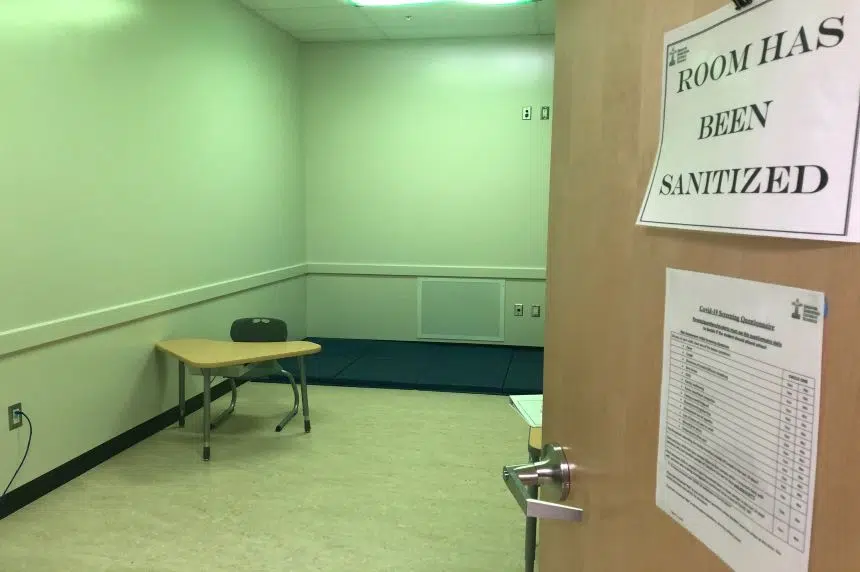The lifting of the public health orders in Saskatchewan on Sunday has eliminated any incentive to self-isolate — even if you test positive for COVID-19.
Saskatchewan criminal lawyer Brian Pfefferle said Wednesday moving into Step Three means restrictions — such as mandatory self-isolation — became expert recommendations, not enforceable law.
“The change is drastic from where we were just a few short months ago to where we are now, but not drastic if we think about the last 24 months. It gets us back to where we were before,” Pfefferle said. “People are essentially free to do what they choose.”
To his knowledge, federal government requirements for those entering Canada have not changed and are still enforceable by law.
It’s not the same story when it comes to provincial law.
“It’s open season …,” Pfefferle explained. “This is equivalent to the government saying, ‘We’re going to reduce speed on this highway to 60 kilometres an hour,’ and then essentially taking the speed controls away and letting us go ahead.”
When the provincial state of emergency was declared in March of 2020, Premier Scott Moe was able to create a situation in which public health orders became law, according to Pfefferle. The health orders, originally suggestions from experts, became law with the declaration.
“Violators could be ticketed and dealt with like any other provincial law,” he said.
“(Hitting Step Three) lifts all the restrictions … Essentially what happens now is any of the previous requirements of citizens, those have been removed. And there are no sanctions.”
On the provincial government’s web page “Self-Isolation” — which was sent to 650 CKOM by the Ministry of Health following a request to interview — the guidance remains that anyone who tests positive for COVID must self-isolate.
“Anyone who tests positive for COVID-19 must self-isolate immediately at home or in another suitable environment for at least 10 days. Anyone identified by public health as a close contact of someone with COVID-19 must self-isolate for 14 days from the date of having been exposed,” the guidance reads.
On another bullet point on the provincial web page, it outlines what to do if someone isn’t self-isolating when they should be.
There, it outlines that if you’ve received medical advice from HealthLine811, your doctor or public health official to self-isolate, you must follow directions. But it also outlines what Step Three brought to Saskatchewan.
“Entering Step Three of the Re-Open plan on July 11 lifted the public health order that granted the authority to ticket individuals who leave self-isolation against the direction of public health officials,” the statement reads.
Pfefferle said the concern for many will be that if they are exposed to someone with COVID-19, that we’ve essentially fallen into an “honour system.”
“Much of all these regulations were, to a certain degree, on an honour-type-system scenario,” Pfefferle said.
“We in Canada can’t use ignorance to the law as a defence to any law. That includes public health orders, provincial laws and the like. But the speed at which all of these things have been changing, being amended, developing, being dropped, being added — it’s almost impossible to keep up with day-to-day living, let alone understanding what requirements are there.”
The criminal lawyer said he doesn’t think this will turn the province on its head, and he’s hopeful people will remain responsible if diagnosed with COVID-19 — fully vaccinated or not.
“People need to use their common sense and make determinations (as) to what they’re going to follow,” he said. “There’s a lot of unanswered questions right now.”
If someone is infected with COVID-19 from an individual who refuses to isolate, Pfefferle said there is a mechanism in which someone could be charged, yet there is no obligation to self-isolate if an exposure arises.
Pfefferle said personally, he has taken COVID seriously with multiple family members immunocompromised. He said he hopes that’s what Saskatchewanians from border to border are also doing.
“I think it’s going to be a slow progression to normal, if we’re there yet or if we should be talking about it yet,” he said. “I’m certainly going to be like many of the citizens in the province and watch for recommendations …
“I trust experts; that’s what I’ve learned to do in my profession … I hope many of the citizens in the province do as well.”











